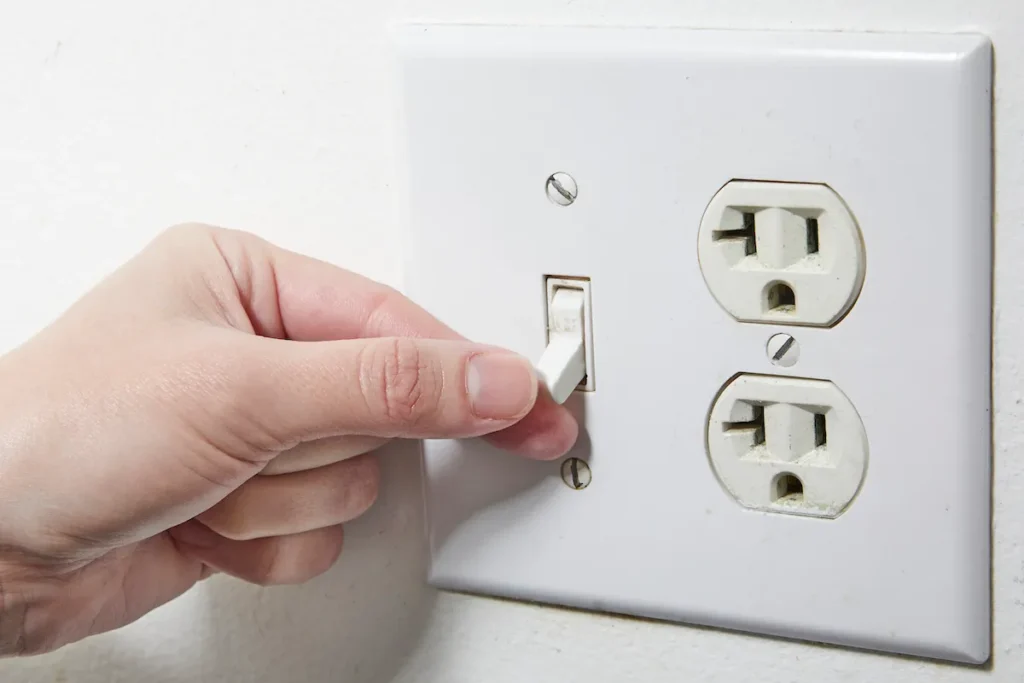Having an outlet not working in your home can be frustrating, especially when you need to plug in appliances or devices. Before calling a professional electrician, it’s worth considering that there may be some simple reasons why your outlet isn’t functioning. In this article, we’ll explore the common causes of a non-working outlet and provide some practical solutions to get it up and running again.
Common Causes of an Outlet Not Working
Several issues could lead to an outlet not working properly. Here are some of the most common culprits:
1. Tripped Circuit Breaker
One of the most common reasons an outlet stops working is a tripped circuit breaker. Circuit breakers are designed to protect your home’s electrical system by cutting power when there is an overload or short circuit. If the breaker for the outlet trips, the outlet will lose power.
How to Fix It:
To check if this is the issue, go to your electrical panel and look for a breaker that is in the “off” position or in a neutral position between “on” and “off.” If you find one, flip it fully to the “off” position and then back to “on.” This should restore power to the outlet.
2. Blown Fuse
If you live in an older home with a fuse box instead of a modern circuit breaker panel, a blown fuse could be the reason your outlet is not working. Fuses can blow when there is a power surge, or they reach the end of their lifespan.
How to Fix It:
If you have a fuse box, check the fuse for the circuit controlling the outlet. If the fuse appears blackened or burned out, replace it with one of the same amperage. Be sure to turn off the main power supply before replacing the fuse.
3. Loose or Faulty Wiring
Sometimes, an outlet stops working due to faulty or loose wiring. Over time, wires can become loose due to wear and tear, causing an electrical connection to fail. This issue is especially common in older homes.
How to Fix It:
If you feel comfortable working with electricity, you can turn off the power to the outlet and remove the cover plate. Check the wires connected to the outlet to ensure they are secure. If any wires appear loose or disconnected, reattach them or use wire nuts to secure them. If you are unsure, it is best to call a licensed electrician to handle the repairs.
4. Faulty Outlet
Another simple reason for an outlet not working is a defective outlet. Over time, outlets can become worn out and stop functioning properly. This could be due to physical damage, such as a broken prong inside the outlet, or just the general wear and tear of everyday use.
How to Fix It:
If you suspect the outlet is faulty, replace it with a new one. Make sure to turn off the power at the circuit breaker before replacing the outlet. If you aren’t comfortable with this process, it’s best to call an electrician to ensure the job is done safely.
5. GFCI Outlet Tripped
Ground Fault Circuit Interrupter (GFCI) outlets are designed to prevent electrical shocks, and they are commonly installed in kitchens, bathrooms, and garages. If a GFCI outlet is tripped, it could cut off power to other outlets connected to the same circuit.
How to Fix It:
To restore power to the non-working outlet, locate the GFCI outlet (usually marked with a “reset” button) and press the reset button. If that doesn’t work, check any other GFCI outlets on the same circuit and reset them as well.
6. Burnt or Damaged Wiring
In rare cases, burnt or damaged wiring in the walls can cause an outlet to stop working. This often happens after an electrical surge or when outlets have been overloaded repeatedly. This is a serious issue that requires immediate attention.
How to Fix It:
If you suspect burnt or damaged wiring, it’s essential to call a professional electrician immediately. Damaged wiring can present a serious fire hazard, and it’s best left to the experts to repair it safely.
What to Do If Your Outlet is Still Not Working?
If you’ve gone through these troubleshooting steps and your outlet is still not working, it might be time to call a professional. An experienced electrician can help you identify the root cause of the problem and safely repair any issues. Additionally, they can conduct an overall inspection of your home’s electrical system to ensure that everything is up to code and functioning properly.
Preventing Future Issues with Your Outlets
To avoid facing an outlet not working situation in the future, here are a few preventative tips:
- Regularly check your outlets: Make sure outlets are free of wear and tear, and test them occasionally with a simple device, like a phone charger.
- Don’t overload outlets: Plugging too many devices into a single outlet can cause electrical issues. Use a power strip if you need to plug in multiple devices.
- Hire a professional: If you’re unsure about the state of your electrical system, have an electrician inspect it periodically to catch any potential issues early.
Conclusion
An outlet not working can be a simple fix, but there are also times when it may signal a more serious issue. By understanding the common causes of electrical problems, such as a tripped breaker, faulty wiring, or a blown fuse, you can troubleshoot effectively and determine whether it’s something you can fix yourself or if professional help is needed. Always exercise caution when dealing with electricity, and if in doubt, don’t hesitate to reach out to a licensed electrician.















